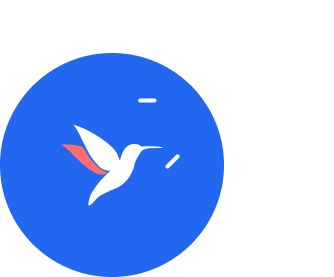
Select a category, click your preferences, discover your best bank options, and switch seamlessly in just a few clicks.
We help you compare and switch to the best financial providers in minutes.
How It Works
- 1. Select a category (fees, rewards, travel, etc.).
- 2. Answer a few quick questions about your banking needs.
- 3. Get personalized recommendations based on your answers.
- 4. Submit your details to switch seamlessly.
Hidden Banking Fees You Didnt Know You Were Paying
Hidden Banking Fees You Didn’t Know You Were PayingBanking fees can add up quickly, often in ways you don’t expect. While many people are aware of standard charges like monthly account fees and ATM withdrawal costs, there are other lesser-known fees that can silently drain your account over time.From inactivity fees to hidden transaction costs, understanding these charges can help you take control of your finances and avoid paying more than necessary. Here’s a look at some of the most overlooked banking fees—and how to avoid them.1. Dormancy Fees: Paying for an Inactive AccountMany banks charge a dormancy fee if your account remains inactive for a certain period—typically six months or more. If you haven’t made any deposits, withdrawals, or transactions, your bank may start deducting a fee each month until the account is closed or reactivated.🔹 Why do banks charge this? Banks justify dormancy fees as a way to maintain inactive accounts in their system, even though they aren't being actively used.🔹 How to Avoid It:✔ Set a reminder to make at least one small transaction (such as a transfer or card swipe) every few months.✔ Close any accounts you no longer use to prevent unnecessary fees.✔ Check your bank’s dormancy policy—some banks waive fees for specific account types.💡 Pro Tip: If you have an account you rarely use, consider switching to a bank that does not charge inactivity fees or consolidating your accounts to avoid unnecessary charges.2. Fees for Bank Statements & Proof of Payment RequestsNeed an official bank statement or proof of a payment you made? It may cost you. Some banks charge a fee for issuing printed statements, especially if you request them in a branch or over the phone. Even requesting an electronic proof of payment (POP) via email or SMS can come with a small fee.🔹 Why do banks charge this? While digital banking makes account records easily accessible, some banks still charge for official statement requests as a way to recover administrative costs.🔹 How to Avoid It:✔ Use online banking to download free statements instead of requesting printed copies.✔ Opt for self-service POPs—some banking apps allow you to send proof of payments for free.✔ If you require official stamped statements for loan applications, check if your bank offers a free alternative.💡 Pro Tip: Some banks offer free statements up to a certain number per month, so check your account benefits before making a request.3. Foreign Currency Conversion Fees on Card TransactionsMany people are unaware that when they use their debit or credit card abroad (or make online purchases in foreign currency), they may be paying a foreign exchange fee. This fee typically ranges from 2% to 5% of the transaction amount, depending on the bank.🔹 Why do banks charge this? Banks apply these fees to cover the cost of converting your local currency into a foreign one. Some banks also add an extra markup on exchange rates, increasing your overall cost.🔹 How to Avoid It:✔ Use a multi-currency account if you frequently transact in foreign currencies.✔ Compare your bank’s forex markup rates to those of fintech providers or travel cards, which may offer lower fees.✔ Consider withdrawing cash abroad in larger amounts to reduce the number of transactions subject to conversion fees.💡 Pro Tip: If you're shopping online in a foreign currency, check whether your bank allows you to hold funds in a forex account to minimise unnecessary conversion charges.4. Unnecessary Monthly Service Fees on Bundled AccountsMany banks offer bundled accounts that include additional services like travel insurance, loyalty rewards, and higher withdrawal limits—but these perks come at a cost. If you’re paying a higher monthly fee for services you rarely use, you may be overspending.🔹 Why do banks charge this? Banks package multiple products together under premium accounts, encouraging customers to pay more for added "convenience." However, many of these benefits go unused.🔹 How to Avoid It:✔ Review your monthly bank statements to check if you’re paying for features you don’t need.✔ Switch to a basic or pay-as-you-use account if you only need essential banking services.✔ Contact your bank to see if you can opt out of bundled services to reduce fees.💡 Pro Tip: If you’re not actively using the benefits of a premium or bundled account, it may be time to downgrade to a more cost-effective option.Final Thoughts: Take Control of Your Banking CostsMany hidden banking fees go unnoticed because they’re small, but over time, they can add up to hundreds or even thousands of rands per year.To avoid overpaying:✅ Regularly review your bank statements for unexpected charges.✅ Compare account options to ensure you’re not paying for services you don’t need.✅ Ask your bank about free alternatives to paid services.Thinking about switching to a bank with fewer hidden fees? Click to Switch helps you compare banking options so you can find an account that saves you money while offering the best value for your needs. Start comparing today!